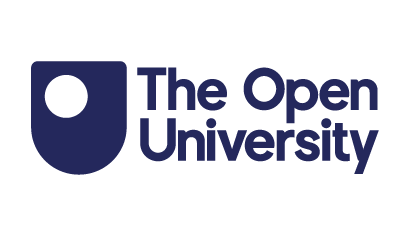Online Teaching: Embedding Social, Race, and Gender-Related Equity
Discover how to embed equity in your online teaching and support equitable participation for all.
Duration
12 weeksCost
$904

Gain the skills and knowledge to design and deliver equitable online teaching
Equality is recognised as giving an individual or group of people the same resources or opportunities in order to succeed. However, equity recognises that each person has different circumstances and allocates appropriate resources and opportunities needed to reach an equal outcome.
This microcredential will give you an understanding of the differences between equality, inclusion and educational equity, and of the ways equitable participation in online learning can be provided in different learner contexts.
Understand the importance of educational equity
We’ve seen an increased awareness of, and activism around, inequity in all aspects of society in recent years. Examples included the rapid increase in global momentum of the #BlackLivesMatter movement; the inequalities resulting in disproportionate death rates from COVID-19 amongst people from Black, Asian and other Ethnic Minority backgrounds; the increasing fight for trans rights across the globe, and the continuation of the ‘Me Too’ campaign.
In all sectors and settings, and all nations globally, it is emerging that formal education has a responsibility to address inequities through the design and delivery of teaching, learning, and assessment activities.
You’ll hear from experts in learning design who are experienced in addressing inequity in all its forms, including decolonising the curriculum and making it more inclusive. You will consider the importance of breaking the cycle of exclusion, discrimination, and disadvantage through the design and delivery of online teaching.
Design your online teaching to address inequity
This microcredential is relevant to anyone working in adult education and training in a variety of settings including higher education, further education and workplace learning and development roles in the private, public or third sector. It will provide you with the foundations to design equitable online teaching, learning, and assessment activities.
You’ll learn how to identify multiple aspects of inequity in education, such as race, gender, gender identity, sexual orientation, and socio-economic status.
You will also discover how to audit online teaching activities and institutional policies in terms of bias and inequity, as well as develop equity audit strategies that are appropriate to addressing diversity in stakeholders’ needs.
Learn from global experts at The Open University
Designed by a team of global experts at The Open University, you’ll learn from interviews with educators in diverse global contexts who are experienced in embedding equity in online teaching, learning, and assessment activities.
You’ll also hear first-hand from learners who have experienced exclusion and discrimination when learning online.
Throughout the course you’ll take part in weekly activities to support and consolidate your learning. At the end of the course, you’ll submit an assessment which is marked and graded by subject matter experts.
This course is part of a suite of Online Teaching microcredentials from The Open University: Creating Courses for Adult Learners; Evaluating and Improving Courses; Accessibility and Inclusive Learning; and Teacher Development: Embedding Mental Health in the Curriculum.
Academic credits from this course can contribute to The Open University’s Masters in Online Teaching.
What skills will you learn?
- Equitable course design
- Ethical practice
- Openness to diverse perspectives
- Conducting an equity audit
- Equitable teaching
- Having challenging conversations
- Critical evaluation of theory and practice
- Evaluating teaching, learning and assessment activities
- Equitable assessment design
- Reflection and reflexivity
- Using evidence to inform practice and advocacy
What you will achieve
By the end of the microcredential, you’ll be able to...
- Demonstrate a critical understanding of the differences between educational equity, equality and inclusion and of the reasons why educational equity should be a priority for educators and institutions
- Demonstrate a critical understanding of the ways in which learners’ contexts can have an impact on their opportunities for equitable participation in online learning, and how this can be addressed by educators and institutions
- Design online teaching, learning and assessment activities that are equitable in their pedagogy and which address issues such as racism, economic injustice, sexism and heterosexism
- Develop equity audit strategies that are appropriate to diverse stakeholders’ needs, for application in online teaching contexts
- Identify and critically evaluate a range of theories relating to educational equity for their relevance to online teaching and learning settings
- Critically evaluate online teaching, learning and assessment activities, and institutional policies, in terms of bias, and inequity
- Demonstrate the following skills: critically engaging with research evidence; presenting arguments that represent diverse perspectives; participating effectively in online communities; managing ethical issues connected with educational equity
Are you eligible for this microcredential?
To study this postgraduate microcredential you will ideally have:
- A Bachelors degree or an equivalent level qualification
- Experience of working in an education or training setting, or recent relevant experience of equity-related issues in an education or training context (for example, as a student)
- A strong interest in making online teaching equitable
The course material does not assume that learners are currently working. Past experiences will be just as relevant.
If you do not have a degree or equivalent level qualification you may find the postgraduate level assessment challenging.
Is this microcredential right for you?
This microcredential would benefit anyone currently working in, or looking to work in: universities, colleges and further education, adult education, and workplace learning and development setting. It will enhance the employability of roles including:
- Teachers
- Trainers
- Lecturers
- Learning designers
- Education technologists and specialists
- Heads of departments
- Institution leaders and managers
The course has a global focus and delivers transferable skills for diverse sectors and organisations.
Syllabus
What happens before, during, and after your microcredential
Before learning
You’ll have access to our online welcome area where you’ll be able to read any information relating to your microcredential.
Course
From 11 Mar 2024
Online Teaching: Embedding Social, Race and Gender-Related Equity
Discover how to embed equity in your online teaching and support equitable participation for all.
12 weeks
13 hours per week
After learning
Your submitted assessment will be marked and graded by subject matter experts. You’ll continue to have ongoing access to the course materials.
What you will receive
15 UK credits at Postgraduate level from The Open University and a Certificate
Academic credits are awarded on passing the final assessment. These will be at postgraduate level 7 of the Framework for Higher Education (England, Wales and Northern Ireland) / level 11 of the Scottish Credit and Qualifications Framework.
Find out how credits work and where you can use them in our FAQs.
What is a microcredential?
Microcredentials are designed to upskill you for work in rapidly-growing industries, without the time and cost commitment of a full degree. Your microcredential can stand alone as an independent credential, and some also offer academic credit to use towards a degree.
Complete online courses led by experts over multiple weeks with a dedicated group of professionals.
Test your understanding with online tutor-marked assessments and exercises.
Finish your learning and pass your assessments to gain an accredited credential.
Use your microcredential as evidence of your specialised skills and progress further in your industry.
Career-focused learning by The Open University
As the UK’s largest university, The Open University (OU) supports thousands of students to achieve their goals and ambitions via supported distance learning, helping to fit learning around professional and personal life commitments.
Established
1969Location
Milton Keynes, UKWorld ranking
Top 510Source: Times Higher Education World University Rankings 2020
Delivered by experts
Dr Leigh-Anne Perryman leads The Open University's Masters in Online Teaching programme. Her research explores the relationship between equity, social justice, online teaching and open pedagogies.
Associate Professor of Practice at the Center for Learning & Teaching at the American University in Cairo. PhD in Education from the University of Sheffield, UK. Co-founder @vconnecting & @unboundeq
Anita Naoko Pilgrim is an Associate Lecturer with the Open University; author of several reports on education and equalities, and of workshops and courses on inclusive education.
Lecturer in Microcredentials and Technology Enhanced Learning at The Open University
Dr Simon Ball (he/him) is an Open University tutor and consultant researcher, specialising in inclusive online learning, educational technologies & accessibility, following a PhD in ecology.
Learning on FutureLearn
Your learning, your rules
- Courses are split into weeks, activities, and steps to help you keep track of your learning
- Learn through a mix of bite-sized videos, long- and short-form articles, audio, and practical activities
- Stay motivated by using the Progress page to keep track of your step completion and assessment scores
Join a global classroom
- Experience the power of social learning, and get inspired by an international network of learners
- Share ideas with your peers and course educators on every step of the course
- Join the conversation by reading, @ing, liking, bookmarking, and replying to comments from others
Map your progress
- As you work through the course, use notifications and the Progress page to guide your learning
- Whenever you’re ready, mark each step as complete, you’re in control
- Complete 90% of course steps and all of the assessments to earn your certificate
Want to know more about learning on FutureLearn? Using FutureLearn
What are our learners saying?
Add a new skill or forge a new path
"I recommend Futurelearn to anyone looking to learn and upskill...If you are in the job market, you might want to add a new skill or forge a new path."
They bring the classroom right to you
"FutureLearn courses are always interesting and informative. They bring the classroom right to you and send you on a journey to explore new ideas and offer interesting topics."
When would you like to start?
Enrolment for this microcredential is closed. We aim to run our microcredentials every few months. Register to find out more about this microcredential and future start dates.
Find out more
Not sure if microcredentials are right for you? Fill in your details below and we will send you more information to help you make a decision.
FAQ
We can accept payments made by card (Visa, Mastercard and American Express) or PayPal via our online system.
You will have 14 days from the day the course starts to apply for a refund. If this Microcredential has any non-refundable costs they will be stated in the ‘Overview’ section above. You can find more information in our cancellation and refund policy.
Microcredentials are designed to fit around your life and timezone.
There may be live events as part of your studies, but these will be recorded and can be watched afterwards if you aren’t online for the live broadcast.
No, microcredentials are designed to be taken anywhere in the world. You won’t need the right to study in the country where the university offering the microcredential is based.
Microcredentials are stand-alone courses designed to meet specific learner and employer needs. Those awarded by The Open University have academic credit value at either undergraduate or postgraduate level, and, if appropriate, this may be used towards selected Open University qualifications. For more details, including eligible qualifications, visit The Open University’s Counting microcredentials towards OU qualifications page.
The credit awarded may potentially be used at another university, subject to the agreement of the receiving institution.
Want to know more? Read the microcredential FAQs, or contact us.

